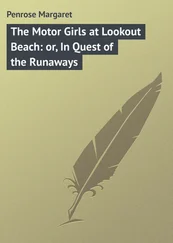The Germans were arguing about directions. Lennart understood some German — he’d studied it at school — but he was having a hard time following what they were saying. Beside him on the seat, a dozen bird decoys in a clear plastic bag stared up at him. He sipped his coffee, listened for words he knew. They hadn’t left the hotel parking lot yet. He’d met the Germans in the bar the night before, Saturday. The bar was crowded and Lennart had found himself sharing a booth with the Germans. They were biologists, and had already been very drunk by the time Lennart sat down. He couldn’t remember the name of the university where they worked, but he remembered that it was near a lake and that they’d come to Denmark to research birds. They were married. He remembered this too. Anneke was a little taller than her husband, Matthias, and she talked more than he did. Near the end of the night, over shots of Danish bitters, Anneke had insisted Lennart join them in the morning. “The Mile,” she’d said and swept her arm out in front of her, nearly toppling a row of empty glasses, “is unlike anything else.” He’d tried to decline the invitation but Anneke insisted. “Tomorrow is your last chance,” she said. “We leave Sunday.” Lennart planned to go home Sunday too. He agreed to join them, assuming that even if he remembered the commitment in the morning he’d be tired or else sleep late and miss them.
At six or so he woke up, still wearing his shirt and his socks, the television whispering to the room. He dug his head under the lumpy pillow. The pillow smelled strongly of detergent and beneath that some musky, human smell. By seven, he was sitting up in bed with a cup of terrible hotel coffee muted by a splash of whiskey. The television, which had been playing an endless loop of short advertisements regarding local attractions, flashed to a sweeping aerial shot of wide dunes, gripped in places by patches of tall grass. Immediately, he understood this must be Råbjerg Mile, where the Germans were going to take him. He felt a swab of drinker’s shame pass over him as he remembered the invitation.
It was Marie’s idea that he come to Denmark. She had suggested the trip so that he might get away, as she put it, from a rotten year. It was true his year had been challenging. Last June his father had died. Then the following April, about a week before Easter, his grandfather died. Lennart discovered the body, had been the one to let the police and the coroner into the apartment. All of it was sad and exhausting. He had been a difficult person to live with in the last year. For one thing, he drank too much and was moody. He was prone to get angry, or worse, turn inward and shut down, ignore Marie and Tove for long stretches. They’d all moved into Lennart’s grandfather’s apartment that spring and for the most part the arrangement was working fine. He was happy with Marie. They rarely fought. He enjoyed being around her, talking with her. They made love often enough, and he loved Tove as if she were his own daughter. But beneath all that there was a sense of finality, of permanence, pressing on him. It was immature, he knew, to feel so much anxiety about the ways his life had changed, and continued to change, now that they were a family. It bothered him more than the deaths of his father and grandfather. Marie had convinced him to come to Skagen. She told him about the art galleries and restaurants and the waves that crashed into each other where the North Sea and the Baltic meet. She made the place sound restorative, but to Lennart it was cold and dreary and he’d barely managed to make it out of his room at all.
The trip so far had been a failure. He’d been concocting lies all week about where he’d been and what he’d done. She would be disappointed if she knew the truth. He’d gone so far as to stop outside an art gallery on one of his daily walks to take note of the exhibiting artist’s name so that he might tell Marie about the paintings. In truth, he’d mostly spent the week drinking in his room and, in the evenings, at the hotel bar. By Wednesday, he’d achieved a kind of mania that scratched and buzzed at him deeply, so much so that he was incapable of controlling his own decisions and actions. He simply experienced them. So when he got up and packed a small bag to take with him to the dunes, he found that each of his movements was deliberate, inevitable, and he did not stop to question himself. His body acted before his mind. It was out of character for him to agree to such a trip, or anyway out of character to actually follow through with it, but in the context of his behavior in Skagen so far that week, it made perfect sense.
In the mirror, he gave his face a close inspection and decided he didn’t need to shave. Then he showered and dressed, and met the Germans close to eight in the dining room. There was some awkward small talk as they made their way to the parking lot and more still when Anneke tried to insist he ride in the front seat and Lennart refused, a process that was repeated several times until Anneke gave up, which is how Lennart found himself sitting behind her, beside the bag of bird decoys, listening to her and Matthias argue in German.
Anneke turned around in her seat and said in English, “We’re just figuring out a new way to drive to the dunes. Matthias is being stubborn as usual.” She swatted at his shoulder with her hand.
Matthias smiled. He put the car in gear and eased out of the parking spot. “We’re off,” he said. Then he said something in German to Anneke and touched her leg tenderly.
Soon the city was behind them and the road opened up to a broad flat stretch of land where farms had been squared out across the sandy ground. The wind hummed somberly over the top of the car.
“I hate this song,” Anneke said and switched the radio off. “Lennart, do you know very much about the Mile?”
Before Lennart could answer, Matthias said, “This whole area,” and pointed back and forth across the landscape with a finger, “is very windy. The sand comes out of the sea on the west side of the peninsula and moves across the land to the east and back to the sea. The Mile is the largest migrating sand dune in Europe.”
“Funny to think about, isn’t it?” said Anneke. “Moving ground.”
In no time, they were off the main road, following the signs, posted in many different languages, to the parking lot at the dune’s edge. There weren’t many cars in the lot. Matthias parked near the trailhead. Along the ridge of the nearest dunes grass rattled in the wind.
Lennart helped take the equipment from the car.
“Many species of birds breed here in the spring,” Anneke said after they’d gone a little bit down the trail. She was breathing heavily with the weight of the bags she was carrying and the difficulty of walking in the deep sand. “In late autumn they come back on their migration south. We think these groups end up in Africa, maybe Italy. We’ve been hoping to find tags from other countries on the birds so we’ll know for sure. So far only the Netherlands and two from France.”
Lennart looked at the bag of decoys. He was surprised by how attentive he’d been to Anneke’s explanation. He had assumed he’d simply go with the Germans to the Mile and leave them to work while he walked around, maybe read for a little bit, enjoy what was sure to be one of the only warm days of his trip, certainly one of the only activities he could report to Marie, but the Germans’ work captivated him and he wanted to stay to watch. “Do you catch the birds?” he asked her.
“With a net,” she said. “You’ll see. We want to compare population sizes from this year and five years ago, when we came here last. If we see a decrease we know that there has been habitat destruction. Plovers, that’s the type of bird Matthias and I study, are a very common and robust species in the north of Europe. To see a decrease in their numbers would be ecologically discouraging.”
Читать дальше











